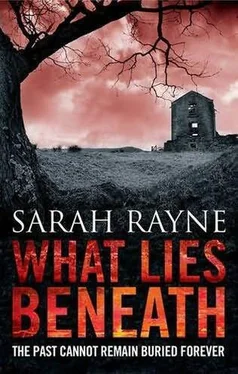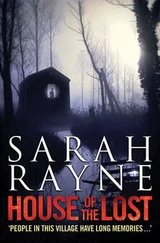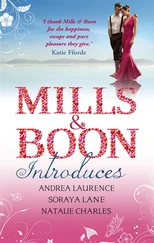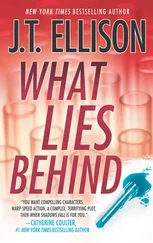None of them could have known there were times when the struggle was so intense I had to break off – times when I would sob with the pain and the sheer bloody strength of the clawing tearing madness… It wouldn’t let go, you see. It simply wouldn’t let go. And at times it became too much for me. There were nights when the evil greedy Hyde triumphed and I would slink through the lanes and the villages around Cadence Manor. It wasn’t so easy to find victims; it was the depths of the country and people were not so ready to go out and about, particularly after dark. Also, in the years following the war, the country was still recovering and it took time for life to return to a semblance of normality.
But in any society and in any time there are always a few loners – girls, occasionally men – who can be found if you look in the right places. Railway stations are a good source; it’s easy enough to wait outside a railway station and watch for a solitary traveller. Bramley Halt was quite a busy line for a good many years and in those days of which I’m speaking – the twenties and then into the early thirties – girls still came to the country to visit or to work. There weren’t many ‘big houses’ left by then; the war had swept away so much of the class divisions and it had certainly swept away much of the old feudal system. But there were some. Girls would come to the area to take up a position as parlourmaid or housemaid. And if one or two failed to arrive at their destinations, no one enquired too deeply. Perhaps there would be an irritable letter sent to the agency who had engaged them, but other than that people would simply say how unreliable girls had become since the war. It was annoying and inconvenient, but the agency could supply another one.
I generally got rid of my victims’ bodies by tumbling them into the back of a goods wagon. God knows where they ended up, but wherever it was, it was miles away and no connection was ever made with Bramley or Cadence Manor.
But it wasn’t until Saul was sixteen that I suddenly saw how I could use my own darkness to get him out of the way.
I was returning late at night from a very unsatisfactory expedition. I had spent most of the day fighting the darkness, but around ten o’clock that night I had given in and slipped out of the manor by the side door. I found a girl all right, but she fought me like a tiger and, as the fishermen say, she was one who got away. But before she did so, she clawed my neck and hands quite severely. I slunk back to the lodge, furious with her and myself, the darkness still biting at the edges of my mind, my wounds stinging.
I went through the gates as quietly as I always did, and through the shrubbery. I didn’t trouble to be particularly furtive; it was after eleven o’clock and no one was ever about at that hour.
Except that someone was on that occasion. Colm was walking along the drive, and he saw me at once. His mild eyes peered at me in surprise. He said, ‘Jamie? You’re covered in blood. And your clothes are torn.’
I was reaching for the slate and charcoal pen I always kept in a pocket – although I have no idea what I would write because what can you write about being covered in blood with your clothes torn and muddied at eleven o’clock at night? But he said, in a voice I had never heard him use, ‘Jamie – is it Saul? Has he been violent in some way?’
Saul. There it was, you see, all laid out for me, without my having to do a thing. I made a gesture of deep sadness, then nodded.
‘I was always afraid of this,’ Colm said after a moment. ‘That violence would erupt. Can you tell me what happened?’
I did tell him. I scribbled it all out on the slate, and what I wrote was nothing more than the truth – except that I made it appear that Saul had been the attacker, not me. Saul had slipped out of the house, believing himself unnoticed, I wrote. I happened to have seen him and followed at a distance, not wanting to intrude on his privacy, but wanting to make sure all was well.
‘That’s like you,’ Colm said, his weak eyes teary with emotion. ‘And you’d try to protect him, I know that. You’d have kept this from us if you could. If I hadn’t walked down to the gates tonight, to clear my head after working late…’
The doddering old fool! But I kept to the story he had already half-handed me. Writing quickly, I described how I had seen Saul pounce on the girl, but when Colm asked if I knew who she was I shook my head firmly. I had managed to pull Saul off her, I wrote, although he had resisted me fiercely. Here I made a brief gesture, indicating the deep claw marks and the blood.
‘And the girl?’
I wrote that she had run into the darkness.
‘And Saul?’
That question nearly did floor me. Then I wrote, ‘Should be in his room by now,’ and Colm nodded as if this was acceptable. I saw that the image of me ushering Saul back to the manor and his room had taken root in his mind.
‘This is dreadful,’ he said.
I wrote, ‘Do we talk to him? Challenge him?’
I saw him flinch, and smiled inwardly. Colm would never seek a confrontation.
‘Oh no,’ he said. ‘I don’t think that’s necessary. Providing we can be sure—’
‘That it doesn’t happen again?’
He stared at the words for several moments, then said, ‘Exactly. And if we can be sure it won’t happen again…’
I wrote, ‘It won’t. I won’t let it happen again.’
But of course I did.
Later
Earlier I spent half an hour trying to break through the wall at the back of the cupboard I found nearly seven days ago. But it seems to be a solid wall, and there’s no means of breaking through. I tried, of course. I tore my nails and chipped my knuckles, and I hardly dare write this, but at the end of that hour I had worked free a small section of wood panelling. I’m too exhausted to do any more now and my fingers are too sore. But I shall return to it soon. Oh God, if only I can get out that way, if only…
Because if not, in eighteen hours’ time, I must face my death.
If I’m to be honest, I’d have to say it was the years of the 1930s that finally brought the realization that Cadences and all that went with it had slipped away from me.
It wasn’t that I failed in my attempts. I intended Saul to be pronounced insane and unfit to inherit Cadences and he wasn’t far from that. But over the years, Cadences itself diminished. It didn’t go with a bang, but a whimper. By the time Saul was eighteen it was no longer the golden glittering prize; it was a husked-out shell, barely making a profit. I don’t think there was one specific cause that killed it. The American Stock Market Crash in 1929 – the infamous Wall Street Crash – wiped out billions of dollars in a single day, and the financial markets throughout the entire world suffered as a result – except, I believe, in Japan. People said the Crash put an end to the roaring twenties. It certainly began the end of prosperity for Cadences. And even if Cadences could have rallied from that, the Second World War came and finished the task. And all the things I did – all the lives I took and all the lies I told and deceits I practised – I needn’t have bothered.
It’s sad and ironic to look back and know all of that.
But for the moment I have returned to my desk and these pages, and it looks as if I have spaced out my story very well indeed, because I see that all I have left to write is the account of what happened with that village slut Brenda Ford.
The fact that I went after Brenda Ford surprised me then, and it still surprises me, even ten years afterwards.
At the time of the Brenda Ford incident I was fifty-seven, if anyone wants to know. That’s not so ancient by today’s standards. People of fifty-seven are capable of all kinds of remarkable things. Politicians and bankers seem to dodder on into their dotages. Look at Winston Churchill. He was getting on for seventy when he rallied Britain to win the Second World War.
Читать дальше












